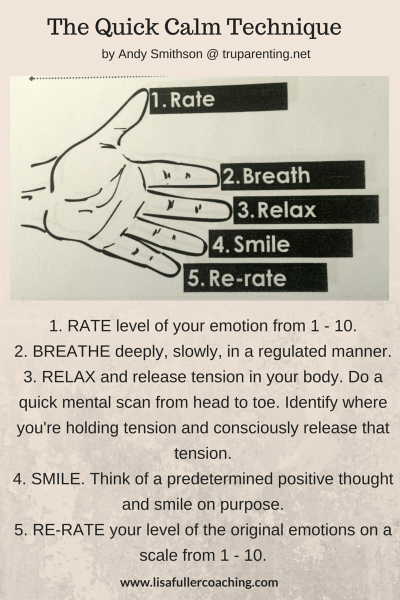We want our kids to be happy and feel good about themselves — knowing they’re struggling can feel unbearable.
Today’s post is about how to deal with your emotions around your child’s disappointment — a question that Michelle so eloquently asked last time. Here’s my own poignant parenting story….
Years ago when my son, I’ll call him Sunny, was 11 or 12, baseball season had ended and he wanted, with all his heart, to make the all-star team so that he could continue to play. He’d been chosen in years past but knew it was competitive. Being Sunny, he was optimistic and it was clear that playing more baseball was the most important thing in the world to him — hands down. A perfect recipe for parental anxiety.
Each day he’d come home and ask, mom, did the coach call? A look of hopeful anticipation in his eyes.
My heart broke as I had to tell him, 3 or 4 days in a row that no one had called. Silence. Are you sure? Ouch.
Sunny was the kid who went through life, like a duck, letting harsh things that happened to him roll right off. So when he uncharacteristically invested himself in this outcome, it was all the more painful to witness.
At the time I knew that a rescue attempt was ill advised. I felt helpless and didn’t know what to do. While it sounds like a minor letdown now, this disappointment was HUGE in his life, and I was at a loss for how to support him.
Looking back I think his dad or I could have shared our own painful experience if only to join him in that dark space.
I doubt it would have made him feel better but company always helps.
As the parent, I needed to also take a stance that would help me better cope with the urge to jump in and make things better.
As a coach, I often help clients find alternate points of view on an area of their life where they feel stuck.
Below is an example of different perspectives you can step into to shift YOUR experience when your child goes through their inevitable disappointments.
GRITTY VIEW: The research is clear that children who’re able to persevere through trials and tribulations have an essential characteristic for success – grit.
While they’ll remember epic disappointments, if they’re able to weather them with a sense of grounded security, your kids will more likely learn to forge ahead, a quality that will undoubtedly serve them well in life.
Parental fixing (or on the flip-side, shaming) blocks your child from learning this valuable lesson. Fixing and shaming, while they look different, convey the same message to your kid — I don’t believe in you.
[tweetthis hidden_hashtags=”#parenting”]Don’t treat your son like a prince unless his father’s the King, if you do, life will be a rude awakening.[/tweetthis]
I don’t remember where I heard this but I love its clear wisdom.
POETIC VIEW: “For after all, the best thing one can do when it is raining is let it rain.” ―Henry W. Longfellow
Broadening your perspective through poetry and philosophy can be just the tonic you need to pull you out of the painful, cramped feeling of “not enough” that tends to overwhelm you when your
child feels badly.
 MINDFUL VIEW: Practicing mindfulness strengthens your ability to have boundaries.
MINDFUL VIEW: Practicing mindfulness strengthens your ability to have boundaries.
The Quick Calm Technique created by Andy Smithson of truparenting.net is a tool that when practiced can move you from heated to less heated 🙂
Here it is in a nutshell:
Use this technique to bring yourself down from anger, anxiety, sadness… these steps enable you to respond more proactively — more mindfully — to any situation you find yourself caught up in. You have power over how you feel.
PASSIONATE VIEW: When you take time to nurture your own passions, you get less tied up in knots about the minutiae of your child’s life. This helps you avoid the unwitting substitution of your child’s experiences for your own.
Here are some examples of activities (outside of work and parenting) that parents have shared with me that bring meaning and passion to their lives:
- join an adult sports team
- volunteer in an underserved school
- write a blog or novel
- coach a team (outside of your child’s)
- volunteer at a hospital
- train for a triathlon
If you don’t want to do it for yourself, then you’ve got to do it for the sake of your kid. Only when you nourish yourself and cultivate your own interests will your child see a way to do this for herself.
MY VIEW: One of the gifts I’ve found through using Positive Discipline is a path to keep things simple.
If I’m bending over backward to make something happen for my kid, I hear that voice inside warning me something’s off or as Michelle put it — “THAT’s INSANITY — DON’T DO IT!”
Still the impulse and overwhelming sadness remains.
Don’t push it away. Rather, let yourself feel sad and have a chance to heal from your own old wound. When you get triggered by your child’s disappointments — take that step back from your kid and look inside — work on your own or with a therapist to experience your not so buried feelings so that you can move on rather than continuing to stuff it down or overreact to events in your child’s life. Be real and feel your feelings.
When you feel stuck in your own or your child’s disappointment, try one of these perspectives or cultivate a view of your own. Standing in a different place could be just the reset you need to reorient yourself and move forward in the direction you want to go.
If you haven’t already done so, join me on this journey!
Wanna talk? Schedule a time here.




